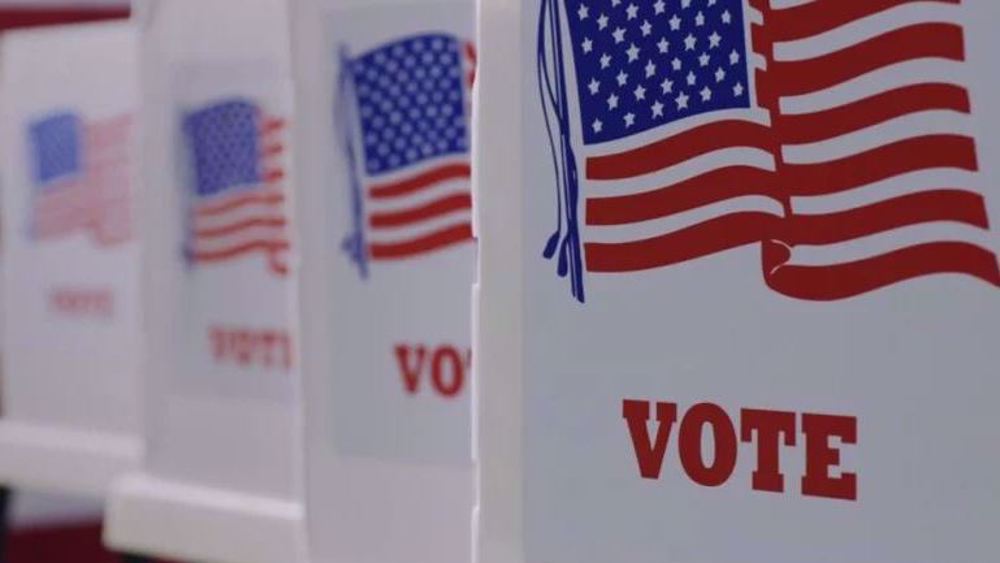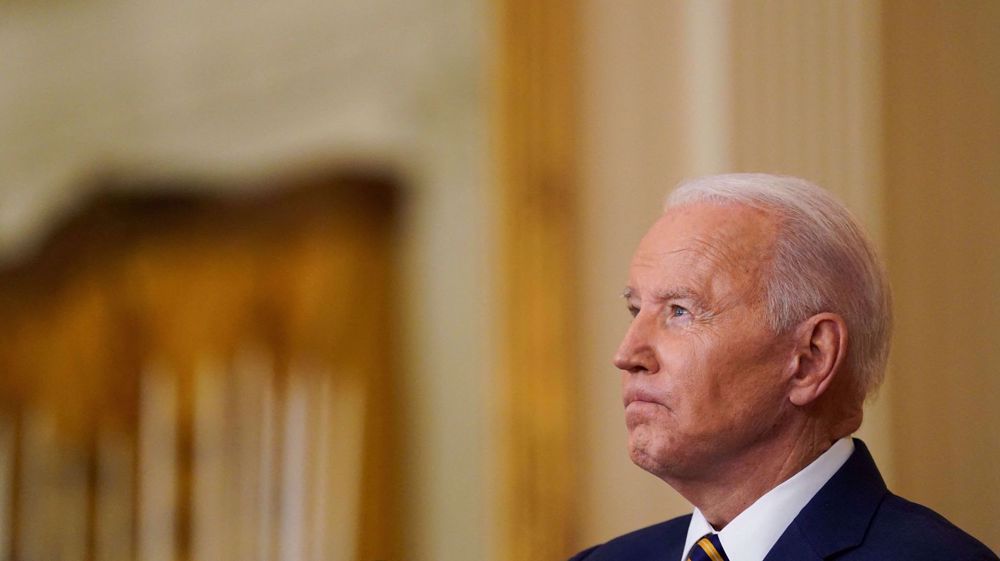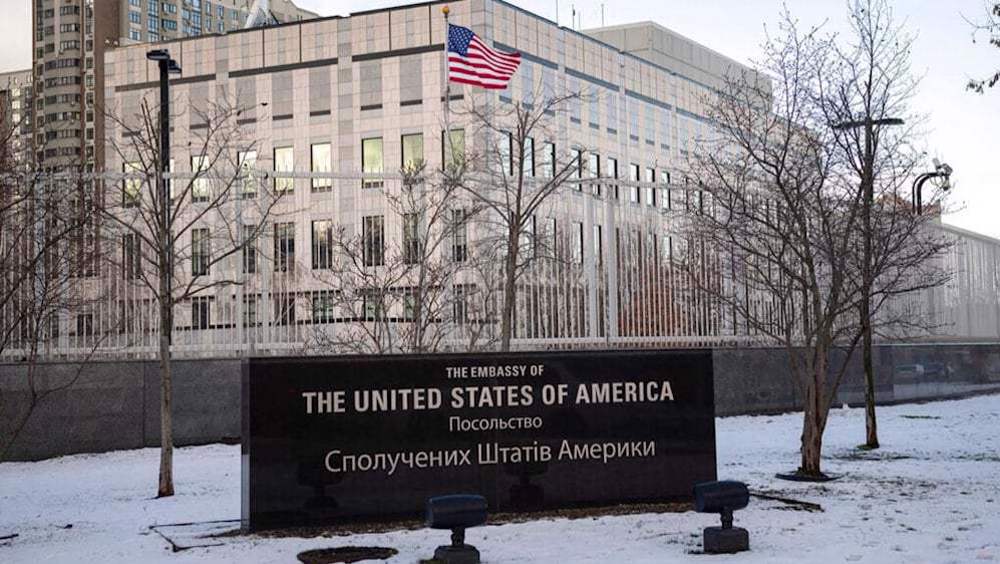US midterm elections outlook darkens for Democrats
The White House has lowered its earlier optimism about the midterm elections and is now worried that Democrats could lose control of both chambers of Congress, administration officials say.
Recent polls have shown Democrats who once had comfortable leads in some Senate races on a knife's edge, and Senate elections that were considered toss-ups between the two parties now leaning Republican as high inflation persists.
The House of Representatives, which Biden and some allies and advisers predicted Democrats could hold earlier this year, is decisively swinging for Republicans, polling analysts including FiveThirtyEight say.
Losing control of one or both houses of Congress will profoundly shape the next two years of Joe Biden's presidency, with Republicans expected to block legislation on family leave, abortion, policing and other Biden priorities while pushing new laws to curb immigration and spending, using the debt ceiling as leverage.
Republicans are also expected to launch investigations into Democratic spending and the business dealings and private life of the president's son Hunter. Some lawmakers say they hope to impeach Biden, his cabinet members or Vice President Kamala Harris.
One person familiar with the thinking inside the White House said Democratic chances of keeping control of the Senate were seen as 50-50.
Biden predicted in May that his fellow Democrats would make gains in both the House and Senate, but he acknowledged last week that the race has tightened. "It’s been back and forth with them ahead, us ahead, them ahead," Biden said, adding the polls were "all over the place," and that he thought they would swing towards Democrats one more time before Nov. 8's elections.
The White House, while realistic, has stuck publicly to that message of hope.
"The president and his advisers feel that we have a strong shot at keeping both chambers and are focused on doing all they can to capitalize on how much Republicans are playing into our hands – including by saying their top priority is to worsen inflation with a tax giveaway to the wealthy," one Biden adviser said in response to Reuters' reporting.
Former and current advisers say the White House is preparing for any obstruction or probes that could be coming.
"The White House is clear-eyed for what Republican control could look like," said Eric Schultz, a Democratic strategist with close ties to the White House. "It's not a mystery where Republicans will go with this if given the gavel."
The White House earlier this year hired white collar defense lawyer Richard Sauber as special counsel to prepare for any investigations, but additional hires and staff shifts are on hold until the election results are in, the person familiar with the situation said. Internal divisions in the Republican Party mean those lawmakers may struggle with what to focus on, this source added.
Abortion, inflation and crime
Driving the recent re-think: the durability of inflation concerns among key voting groups, and trouble fighting Republicans' message across several campaigns that Democrats' support for criminal justice and policing reform means they are soft on crime, administration officials said.
Legislative wins from June and an August vote in Kansas rejecting efforts to remove abortion protections from the state's constitution led Democrats to believe voters were rejecting Republican policy priorities.
But some hopes were dashed earlier this month by a higher-than-expected inflation figure and many polls showing inflation is still voters' top concern.
White House officials and Democratic strategists Reuters spoke to acknowledge the overall shift from midterms optimism but were not ready to give up.
Historically, the midterms favor the party, not in the White House, they note, and close races in the House and Senate could swing for Democrats on just a small number of votes.
"We have been talking about the economy, inflation, abortion, our legislative victories and how that will help Americans for months now," said one White House official, rejecting the idea that Democrats were too optimistic about the impact the Supreme Court's repeal of abortion rights would have on Democratic candidates.
"There has been a surge in women registering to vote in several battleground states and we think it is extremely important to get these newly mobilized voters to the voting booths in November," the official said.
Abortion is playing "a key role," in at least half a dozen competitive Senate races, a second White House official said. "It is also having an impact in center-right districts that are swing districts in House races."
Inflation statistics and Republican messaging on crime have undercut Biden's warning against what he calls the extremist "MAGA" wing of the Republican Party, which has promised to try to curtail abortion rights and other popular freedoms including contraception.
While some analysis shows that Republican-led states have as high or higher murder rates than those led by Democrats, Ipsos polling this month showed U.S. voters prefer Republicans over Democrats for solving crime problems.
Productive, not popular
The White House has failed to leverage a spate of legislative successes on climate, infrastructure and expanded social benefits into higher favorability ratings for Biden, Democratic strategists in battleground states say.
White House press secretary Karine Jean-Pierre said the president has talked frequently about student debt relief, the economy, infrastructure and abortion ahead of the midterms. "Almost every day, you have seen the President in front of the American people, talking exactly to that: what is at stake," she said.
Some Democrats say they wanted to see Biden hit the road more often, highlighting how these policies have impacted local voters. But candidates in some crucial races have also chosen to campaign without Biden, pushing the White House to significantly scale back their planned presence in competitive areas around the country in the weeks leading up to the race, according to an official.
Biden has stepped up his travel schedule in recent weeks, trading between political events and others more focused on specific legislative achievements.
A West Coast swing in mid-October included no stops in Nevada or Arizona, home to two key Senate races, while former President Barack Obama will start a campaign swing this week.
(Source: Reuters)
Hezbollah attacks Israeli forces after Lebanese homes blown up
World leaders, states hail ICC arrest warrants for Netanyahu, Gallant
MP: US accountable for possible Israeli 'foolishness' to attack Iraq
VIDEO | Israeli policies strangle Palestinian agriculture, economy
Iran's president offers condolences to Pakistan over terrorist attack
Canada’s Yukon town council at standstill over refusing oath to King Charles
Yemen's Houthi calls for jihad to protect Palestine against Israel
VIDEO | Internal rifts within Israel











 This makes it easy to access the Press TV website
This makes it easy to access the Press TV website